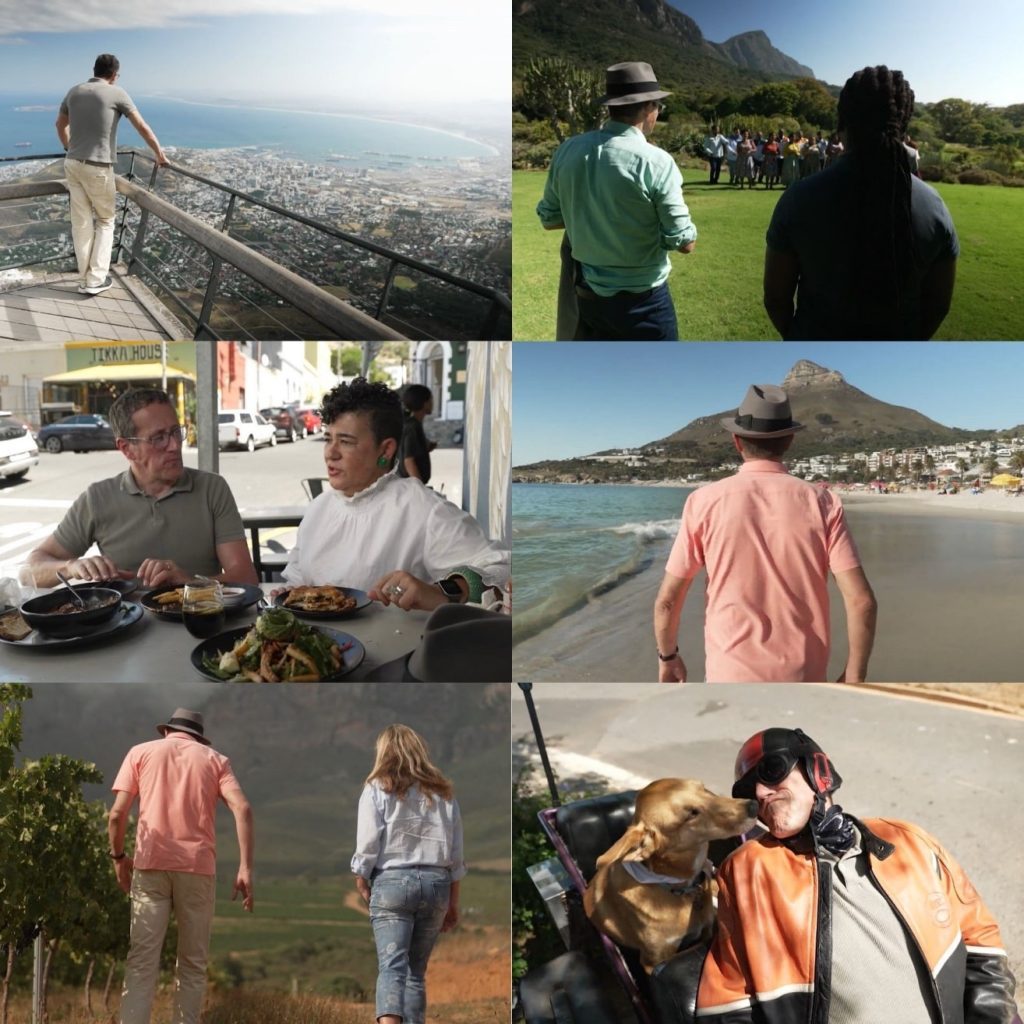In a new episode of CNN’s Quest’s World of Wonder, host Richard Quest explores Cape Town on South Africa’s southern coast. From the beaches, the mountains, and the vineyards, Quest discovers what makes the city so special.
Quest begins his exploration of Cape Town by taking the cable car for panoramic views of the city, “It’s a perfect starting point because now I can really understand the geography of Cape Town in all its glory and beauty. From the beaches to the mountains.”
While trying koesisters, fried pastries flavoured with spices, Quest meets local chef Karen Dudley. She describes the food culture in the city, “South Africans love intense flavour. We’re kind of looking to get to the heart of what is delicious. And Capetonians are actually pretty demanding, they want options and they’re not afraid of putting it all together.”
Dudley gives Quest a tour of her family’s old neighbourhood, from which they were forcibly evicted in the 1960s, and discusses the country’s apartheid past. She says that it is important people remember this period in time, “I think we’re just so thankful for our freedom. I think it makes us more determined people. We’re here, we’re invested. We’ve got to work for change. We’ve got to work for something new. This is our life. It kind of gives it texture. We need these little markers to remind us of who we are.”
Next, Quest visits the beach where he joins South African freediver Hanli Prinsloo on a dive into the kelp forests. Prinsloo explains why she loves this form of diving, which relies on breath-holding, “Every time you get in the water the goal is to make that longer, make that longer. And then one day you’re down there and you’ve got minutes to explore on one breath. It’s about finding those moments of stillness. For me it’s about the wilderness and being connected to nature. And on one breath, in my own body, underwater, is the closest I can get to the ocean.”
Cape Town’s coastline, where the Indian and Atlantic oceans meet, is one the city’s premier attractions. But Prinsloo warns that sustainability and conservation efforts are needed if the ocean is going to survive, “It’s hard to believe that something so immense could fail. We don’t want to believe it, it damages our world view, to think that something so vast could fail. I think it’s really a mind shift that’s needed to think of our ocean as something precious and fragile, that we can actually both have a negative or a positive impact on, depending on how we choose to live.”
After seeing the city and the sea, Quest sets out to visit the vineyards, saying, “The fertile soils that made this land so attractive to early settlers, now bare fruit that produces spectacular wines.” The Plaisir Wine Estate has been growing wine grapes for more than 300 years. Rose Jordaan and her family are the new owners of the estate, and she takes Quest out into the fields to help harvest the grapes.
Quest admits that he thought he’d be bored in the vineyard as a non-drinker, but he’s pleasantly surprised to find many activities including mountain e-biking. As Jordaan sums up, “There’s so much adventure to be had. We’re surrounded by the Cape Floral Kingdom, which is the most abundant floral kingdom on earth. It is so beautiful, these incredible mountains. There’s really something to do for everyone.”
Quest also explores the Kirstenbosch National Botanical Garden where he encounters the Cape Town Opera and their Vice Chairman Africa Melane. Melane tells CNN that nearly every major opera company in the world includes a principal singer or a chorus member from South Africa or the wider continent. He explains why opera is so important to the city, “This is a world-class city. The operatic format of expression is centuries old. It’s ultimately telling a story. You’re just doing it in the most complicated, complex, and wonderfully rewarding ways.”
South Africa is often labelled as the Rainbow Nation. Melane describes the phrase’s origins and what it means today, “We owe that term to the great late Archbishop Emeritus Desmond Tutu. And his vision was that we will all meet, we will share our stories, and we’ll forgive each other, and we’ll be this one wonderful Rainbow Nation. It’s in tatters, right now. It’s hard to believe in one vision when there are so many challenges. It’s repairable. I think the work we have to put in going forward will take a lot more energy than necessary. But it’s not beyond repair.”
Finally, Quest sums up his visit to Cape Town, “What is not to love about a visit to Cape Town
Source : CNN




